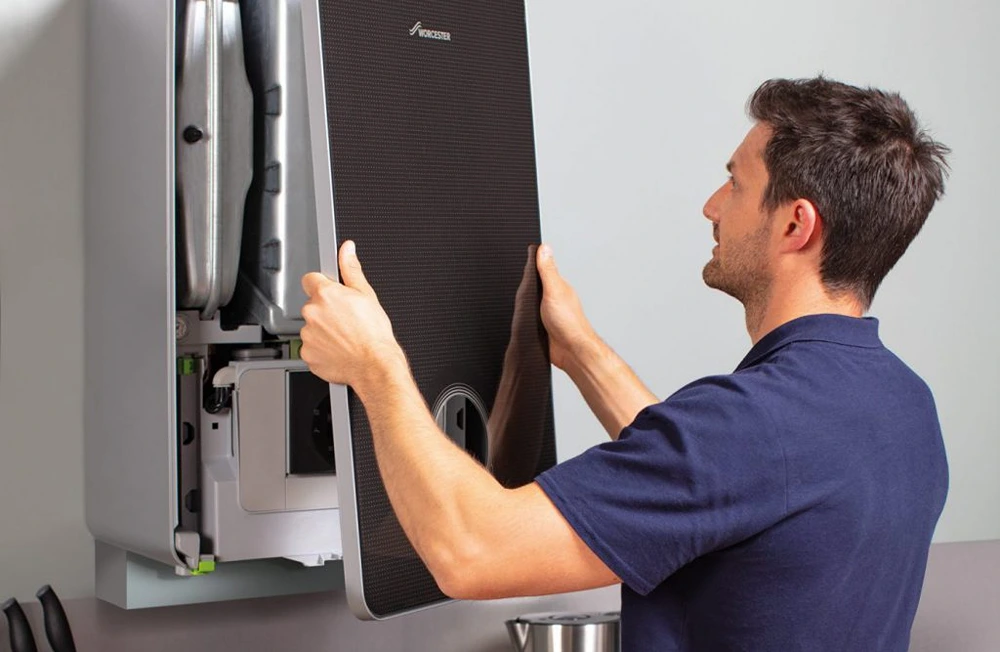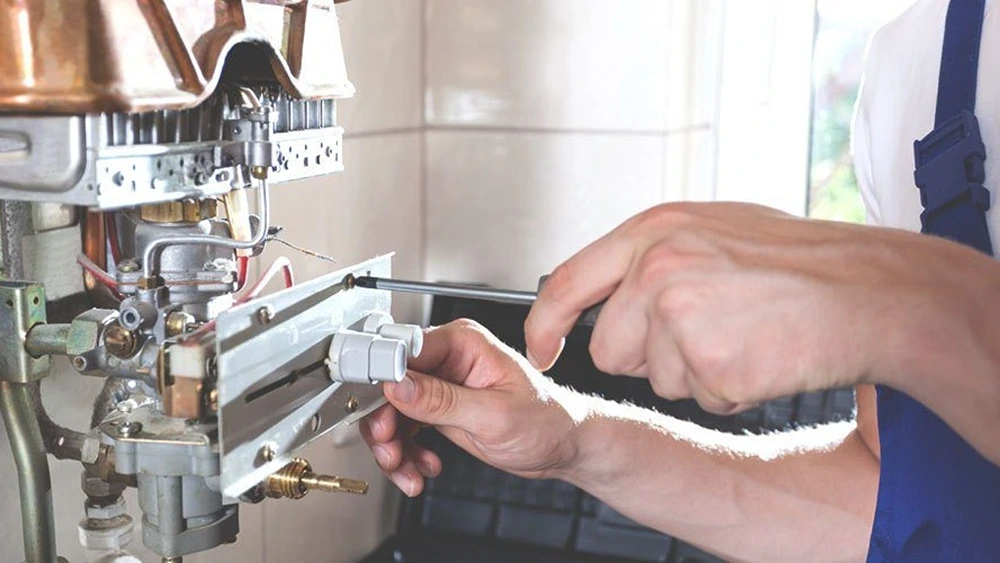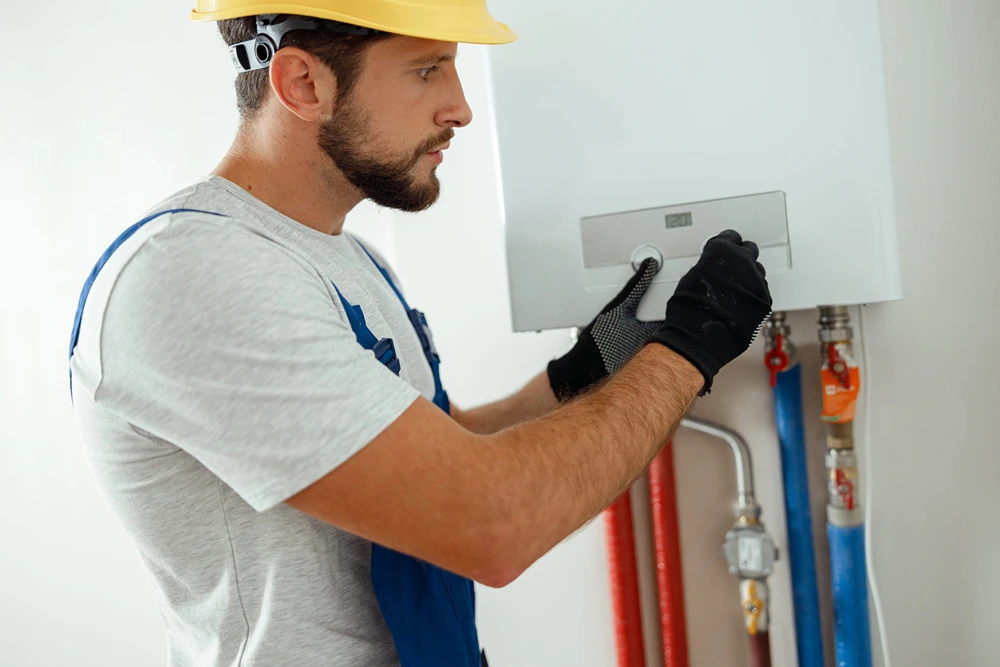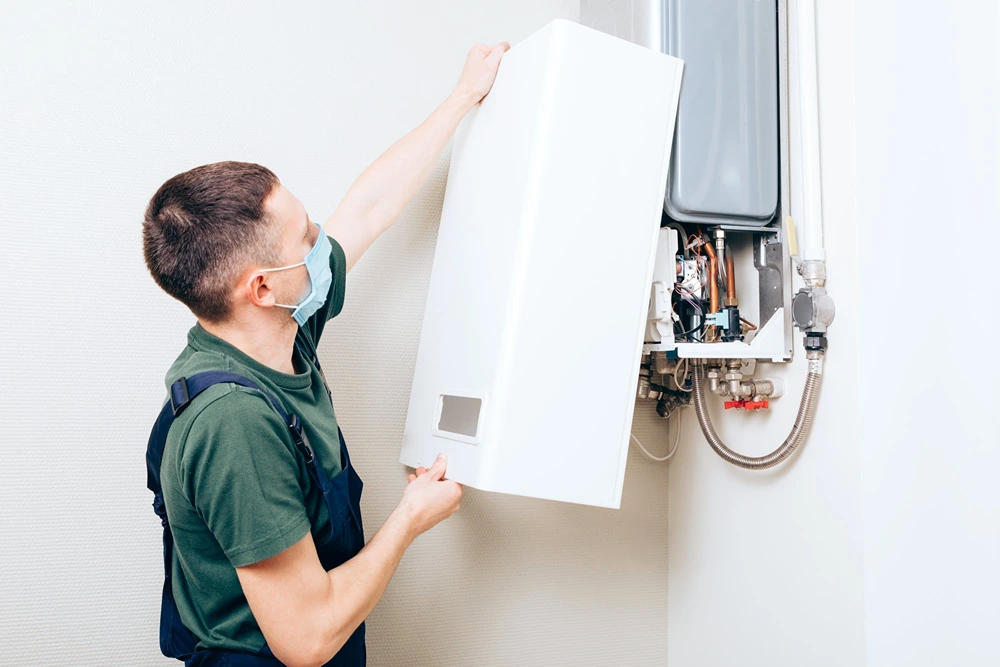Is your boiler guzzling energy like an old gas guzzler on its last legs? Upgrading your boiler system might seem daunting, but the benefits far outweigh the initial effort. Modern boilers can achieve up to 96% efficiency, significantly cutting down energy bills and lowering environmental impact. Modern gas boiler in Glasgow installations exemplify this efficiency, offering local homeowners an opportunity to embrace cutting-edge technology that not only reduces costs but also enhances home comfort. By upgrading to a modern gas boiler, residents can enjoy a more reliable heating system that aligns with environmental goals, ensuring both economic and ecological benefits. This blog will guide you through the reasons, types, costs, and steps involved in upgrading, along with the benefits of making the switch. Discover why a new boiler system is not just an upgrade but a smart investment for your home’s comfort and efficiency.

Reasons to Upgrade Your Boiler System
Upgrading to a new boiler system can significantly improve energy efficiency. Modern boilers can achieve up to 96% efficiency, compared to older models that may only reach 60%. This enhancement in efficiency translates directly to cost savings, with potential reductions in energy bills by up to 30%. The higher efficiency results from advanced technology that effectively utilises fuel, ensuring minimal waste and optimal performance.
New boilers are not only more efficient but also more reliable and require less maintenance. Older boiler systems are prone to frequent breakdowns and require regular servicing to keep them operational. In contrast, modern boilers are designed with durability in mind, incorporating robust components that can withstand daily wear and tear. This reliability means fewer unexpected repair costs and greater peace of mind for homeowners.
The environmental benefits of upgrading to an energy-efficient boiler cannot be overstated. Energy-efficient boilers produce fewer emissions, contributing to a greener environment. By reducing the amount of fuel needed to heat your home, these boilers help lower your carbon footprint. Additionally, many modern boilers support renewable energy sources, further enhancing their eco-friendly credentials.
5 benefits of upgrading to a new boiler system:
- Increased energy efficiency
- Lower energy bills
- Enhanced reliability
- Reduced maintenance
- Positive environmental impact
Types of Boiler Systems Available
Choosing the right boiler type is crucial for ensuring optimal performance, cost-effectiveness, and energy efficiency in your home. Different boiler systems offer various benefits and are suited to different needs and setups.
Gas Boilers
Gas boilers are a popular choice due to their cost-effectiveness and efficiency. They utilise natural gas to heat water, which is then circulated through radiators or underfloor heating systems. Gas boilers are known for their quick heating capabilities and lower running costs compared to electric boilers. Modern gas boilers also come with advanced controls and features that enhance their energy efficiency, making them an economically viable option for many households.
Electric Boilers
Electric boilers are easier to install and maintain, making them a convenient choice for properties without access to a gas supply. They operate by using electricity to heat water, which is then distributed throughout the home. While the installation and maintenance are straightforward, the running costs can be higher due to the price of electricity. Nonetheless, electric boilers are environmentally friendly as they do not produce emissions, and they can be an ideal solution for smaller homes or properties with lower heating demands.
Condensing Boilers
Condensing boilers are highly efficient as they capture more heat from the exhaust gases compared to conventional boilers. This is achieved through a secondary heat exchanger that condenses the steam back into water, recovering latent heat that would otherwise be wasted. This process makes condensing boilers extremely energy-efficient, often achieving efficiencies of over 90%. They are suitable for homes looking to reduce energy consumption and lower their carbon footprint.
Combi Boilers
Combi boilers, or combination boilers, offer the dual function of providing both heating and hot water from a single unit. This space-saving design eliminates the need for separate hot water cylinders or cold water storage tanks. Combi boilers are highly efficient and provide instant hot water on demand, making them ideal for smaller homes where space is at a premium. They are also beneficial in terms of energy savings, as they only heat water when it is needed, reducing wasted energy.

What’s Involved in Upgrading Your Boiler System?
Upgrading your boiler system begins with a thorough assessment of the current setup. This involves evaluating the age, efficiency, and condition of the existing boiler. Identifying the need for an upgrade is crucial—older systems often exhibit signs of inefficiency, such as increased energy bills and frequent breakdowns. Preparing for a boiler replacement involves understanding these signs and planning accordingly. By recognizing the symptoms early, homeowners can ensure a smoother transition to a more efficient system, minimizing disruptions and maximizing the benefits of their new installation. Once the necessity for an upgrade is established, the next step is to decide on the most suitable replacement that meets your home’s heating demands and energy efficiency goals.
Choosing the right boiler and hiring a qualified installer are pivotal steps in the upgrade process. However, there are mistakes to avoid when replacing your boiler that can impact the success of the installation. Common pitfalls include selecting the wrong size or type of boiler, overlooking regulatory requirements, and failing to plan for future maintenance. By being aware of these potential errors, homeowners can ensure a more efficient and hassle-free upgrade. Selecting a new boiler involves considering factors like fuel type, efficiency ratings, and capacity to ensure it matches your home’s requirements. It is equally important to hire a certified professional, preferably one registered with a regulatory body such as Gas Safe. A qualified installer ensures the installation complies with all safety and regulatory standards, providing peace of mind and optimal performance.
The installation process involves several key phases: removing the old boiler, installing the new one, and testing the system. Understanding the boiler installation process can help homeowners prepare for what to expect, ensuring that each phase is completed efficiently and safely. By familiarizing themselves with the steps involved, homeowners can better coordinate with their installers, leading to a smoother and more successful installation. Removing the old boiler safely is critical to avoid any hazards or damage to existing infrastructure. The new boiler is then installed, which may include upgrading the gas supply or radiators to accommodate the new system. Once installed, the boiler undergoes a series of tests to ensure it operates efficiently and safely. This entire process can take anywhere from a day to a week, depending on the complexity and any additional upgrades required.
- Assess current system
- Choose a new boiler
- Hire a qualified installer
- Remove old boiler
- Install new boiler
- Test the system
Costs Involved in Upgrading Your Boiler System
The cost of upgrading a boiler system can vary widely, typically ranging from £2,800 to £3,700. Understanding the cost of a new boiler involves considering various factors such as the type and brand of the boiler, installation complexity, and additional features like smart controls. By evaluating these elements, homeowners can make informed decisions that balance budget constraints with the benefits of a more efficient heating system. This variation depends on several factors, such as the type and brand of the boiler, as well as the location of the installation. Higher-end models and those with advanced features generally incur higher costs. Additionally, the complexity of the installation can influence the overall price. Labour charges, which can differ based on geographical location, also contribute to the total expense. Therefore, obtaining multiple quotes from qualified installers is advisable to get a comprehensive understanding of the potential costs.
Additional costs may arise during the boiler upgrade process. Upgrades to the gas supply or radiators may be necessary to accommodate the new system, adding to the overall expense. Incorporating smart controls can enhance the efficiency and convenience of your heating system but may also increase the initial outlay. Financing options, such as 0% APR financing for up to four years, can help manage the financial burden. These options allow homeowners to spread the cost over a more extended period, making the investment more manageable.
| Cost Factor | Estimated Cost |
|---|---|
| New Boiler Unit | £1,500 – £2,500 |
| Labour Charges | £300 – £1,000 |
| Gas Supply/Radiator Upgrades | £200 – £500 |
| Smart Controls | £200 – £400 |
Choosing the Right Contractor for Boiler Installation
Selecting a qualified contractor is pivotal for a successful boiler upgrade. The right professional ensures that your new system is installed correctly, operates efficiently, and complies with all relevant safety regulations. This not only guarantees optimal performance but also provides peace of mind knowing that the installation meets industry standards.
When hiring a boiler installer, it’s essential to look for specific credentials and certifications. A key certification to check for is Gas Safe registration, which demonstrates that the contractor is authorised to work with gas appliances. Additionally, reviewing the contractor’s experience, qualifications, and any specialised training can further assure you of their capability to handle the installation. Ensuring these credentials helps avoid potential safety risks and ensures the longevity of your new boiler.
Obtaining multiple quotes and checking reviews are additional steps that can aid in choosing the right contractor. Multiple quotes provide a range of pricing options and help identify any outliers that may be overcharging or underbidding. Reviews and ratings from previous customers offer insights into the contractor’s reliability, workmanship, and customer service. This information can be invaluable in making an informed decision.
5 tips for choosing the right boiler installation contractor:
- Verify Gas Safe registration
- Check experience and qualifications
- Obtain multiple quotes
- Review customer feedback
- Ensure warranties are provided

Understanding Regulatory Requirements for Boiler Upgrades
Regulatory compliance is crucial when upgrading a boiler system. Local regulations and standards ensure that installations are safe, efficient, and environmentally friendly. Non-compliance can result in significant penalties and potential safety hazards. Therefore, understanding and adhering to these regulations is essential for both homeowners and installers.
Obtaining the necessary permits is a fundamental step in the boiler upgrade process. Permits verify that the planned installation meets all local building codes and safety standards. These permits often involve inspections by local authorities to ensure that the installation is executed correctly and safely. Safety measures such as proper ventilation, correct flue positioning, and safe gas connections must be meticulously followed to prevent accidents and ensure optimal performance.
Energy performance certificates (EPCs) play a critical role in boiler upgrades. An EPC provides a rating of your home’s energy efficiency, which can be crucial for understanding the impact of your new boiler. Installers should follow best practices for compliance, including adhering to manufacturer guidelines and ensuring that all components are correctly installed and tested. This ensures that the upgraded boiler system not only operates efficiently but also contributes to overall energy savings and environmental sustainability.
The Benefits of Upgrading to an Energy-Efficient Boiler
Upgrading to an energy-efficient boiler can lead to significant energy savings and cost benefits. The impact of a new boiler on energy bills is profound, with potential reductions of up to 30%. By investing in a high-efficiency model, homeowners can enjoy lower monthly expenses and a more sustainable lifestyle, making it a financially savvy choice in the long run. High-efficiency boilers can achieve up to 96% efficiency, compared to older models that might only reach 60%. This enhancement in efficiency translates directly into cost savings, potentially reducing energy bills by up to 30%. By utilising advanced technology to maximise fuel utilisation, these boilers ensure minimal waste and optimal performance, making them a financially sound investment for homeowners.
The environmental benefits of upgrading to an energy-efficient boiler are substantial. High-efficiency boilers produce fewer emissions, thus contributing to a reduced carbon footprint. By requiring less fuel to generate the same amount of heat, these boilers help decrease the overall consumption of fossil fuels. Additionally, many modern boilers are designed to be compatible with renewable energy sources, further enhancing their eco-friendly credentials and promoting sustainability.
Energy-efficient boilers also improve home comfort by providing consistent heating. Unlike older systems that may struggle to maintain a uniform temperature, modern boilers ensure even heat distribution throughout the home. This eliminates cold spots and enhances overall comfort. The reliable performance of these boilers also means fewer breakdowns and maintenance issues, ensuring that your home remains warm and comfortable year-round.
5 benefits of energy-efficient boilers:
- Increased energy efficiency
- Lower energy bills
- Reduced carbon footprint
- Consistent heating
- Enhanced home comfort
Long-Term Impact of a New Boiler on Your Home
Installing a new boiler can have a profound long-term financial impact. One of the most immediate benefits is the reduction in energy bills. Modern boilers are designed to be highly efficient, often achieving up to 96% efficiency. This increased efficiency means that less fuel is required to heat your home, resulting in lower energy costs. Over time, the savings on energy bills can be substantial, effectively offsetting the initial investment in the new boiler. Additionally, a new boiler can enhance the value of your property. Potential buyers view an up-to-date, efficient heating system as a significant advantage, which can make your home more attractive in the real estate market.
The sustainability and future-proofing aspects of modern boilers are equally important. New high-efficiency boilers produce fewer emissions, contributing to a lower carbon footprint and promoting environmental sustainability. Future-proof boilers are designed to be compatible with smart home systems and renewable energy sources, such as solar panels and heat pumps. This compatibility ensures that your heating system remains relevant and efficient as new technologies and energy solutions become available. By investing in a future-proof boiler, you can be confident that your heating system will continue to perform optimally and sustainably for many years to come.
4 long-term benefits of installing a new boiler:
- Reduced energy bills
- Improved property value
- Lower carbon footprint
- Compatibility with smart home systems and renewable energy sources

Final Words
In the action, upgrading your boiler system offers numerous benefits. Improved energy efficiency and reduction in energy bills are among the top reasons for an upgrade. Modern boilers are more reliable and require less maintenance. Additionally, the environmental advantages of using energy-efficient boilers cannot be understated.
Selecting the right type of boiler, understanding the costs involved, and complying with regulatory requirements are essential steps in the process. Choosing a qualified contractor ensures a smooth installation process.
What’s Involved in Upgrading Your Boiler System? It brings substantial long-term improvements to home comfort, cost savings, and environmental responsibility. Upgrading is a positive step towards a more efficient and sustainable home.
FAQ
What is involved in installing a new boiler?
Installing a new boiler involves assessing your existing system, selecting the right boiler, hiring a qualified installer, removing the old boiler, installing the new one, and conducting a thorough test of the system.
How much does it cost to update a boiler system?
The cost to update a boiler system typically ranges from £2,800 to £3,700. Additional expenses may include upgrading the gas supply, radiators, or adding smart controls. Financial options may also be available.
How long does a boiler upgrade take?
A boiler upgrade generally takes between one day to a week. The duration depends on the complexity of the installation and necessary upgrades to components like the gas supply or radiators.
What is the government boiler upgrade scheme?
The government boiler upgrade scheme aims to support households in improving energy efficiency. It provides financial assistance or incentives to upgrade to modern, energy-efficient boilers, thereby reducing energy consumption and greenhouse gas emissions.


